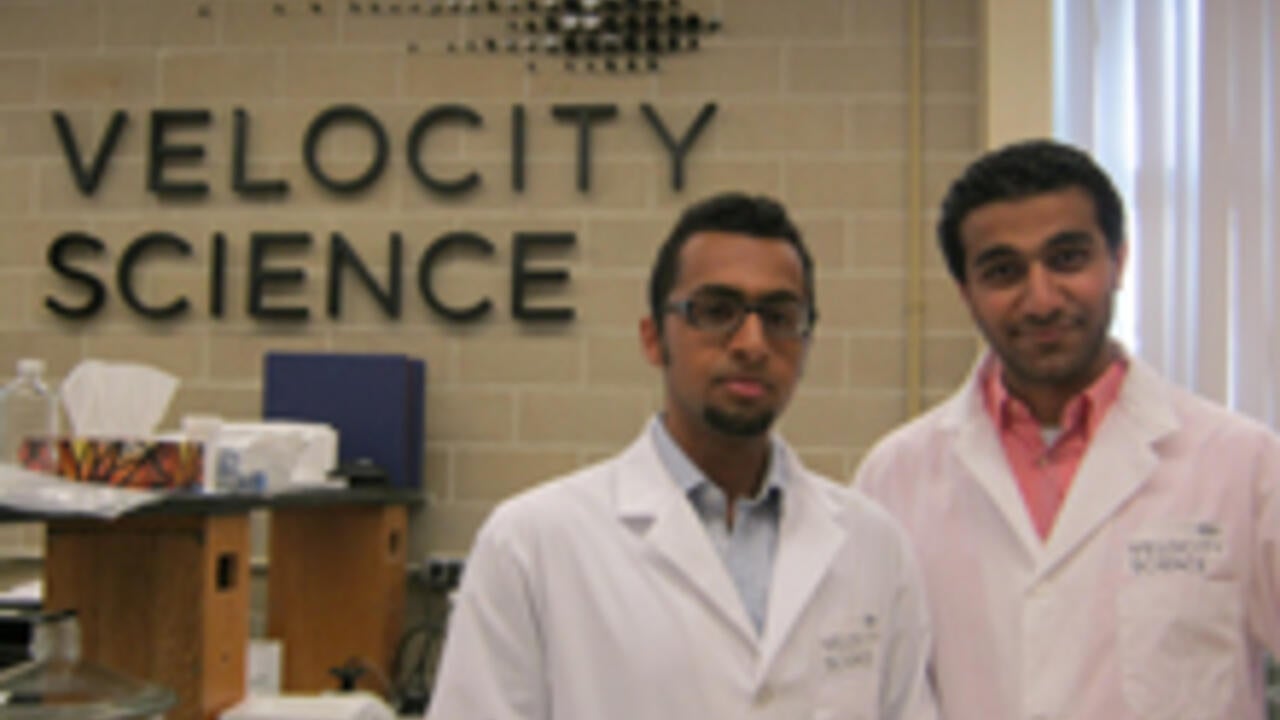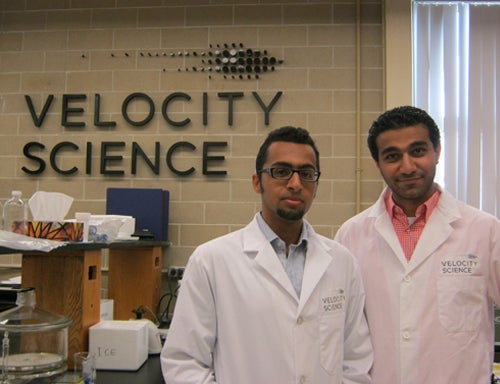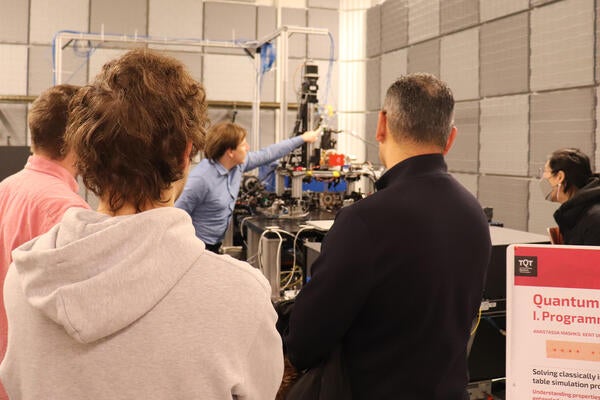
Waterloo startup: Biosensor will detect post-op complications
NERv is developing a biodegradable biosensor that will give doctors early warning of infection or bleeding after surgery

NERv is developing a biodegradable biosensor that will give doctors early warning of infection or bleeding after surgery
By Annette Van Gerwen Marketing and Strategic CommunicationsYoussef Helwa wants to remove the fear factor from those stressful weeks after a patient undergoes surgery.
To help prevent post-operative complications, he and a team of University of Waterloo entrepreneurs are developing a tiny biosensor that would be left inside the body to alert doctors to bleeding or infection.
“Post-op complications are a major problem in healthcare right now. They are very hard to detect, and can sometimes become life-threatening,” says Helwa, a nanotechnology engineering student and co-founder of NERv, a startup that aims to develop a portable, implantable bio-lab. NERv is working out of Waterloo’s Velocity Science program, the University's new discovery space for companies focused on life and physical sciences.

(left to right) NERv partners Amr Abdelgawad and Youssef Helwa
The device will essentially be a nano-sized lab capable of assessing and providing feedback to doctors as patients go about their daily activities after surgery, says Helwa.
The team’s initial focus is on abdominal surgeries, such as those involving the liver, kidneys and intestines. The biosensor will detect biomarkers in the body that signal, for example, the start of an infection, hemorrhaging, or ischemia, a serious complication of inadequate blood flow to an organ.
NERv is targeting abdominal surgery because diagnosing complications after non-invasive abdominal surgery is challenging and expensive, says Helwa, adding that statistics show one in four abdominal surgery patient suffer post-op complications.
The biosensor itself is about a centimetre in diameter and is designed to be implanted inside a patient before their surgery is completed. Made of biocompatible and biodegradable materials, the small device won’t harm the body and can last up to a month before it starts to biodegrade.
“The highest risk for complications is within the first month following surgery,” Helwa says.
If a problem is detected, the NERv device sends an alert to the doctor or patient on their mobile device. The message may include a description of the complication, its location and severity. If a patient has been discharged from the hospital, the system can be set to notify them on their mobile device to see their doctor immediately.
"Early detection and immediate action are key,” says Helwa.

Read more
12 Waterloo students and postdoctoral fellows receive up to $10,000 in funding to develop their green-tech solutions

Read more
Here are the people and events behind some of this year’s most compelling Waterloo stories

Read more
TQT Quantum Opportunities and Showcase sheds light on quantum research advancements, discoveries and real-world applications
The University of Waterloo acknowledges that much of our work takes place on the traditional territory of the Neutral, Anishinaabeg and Haudenosaunee peoples. Our main campus is situated on the Haldimand Tract, the land granted to the Six Nations that includes six miles on each side of the Grand River. Our active work toward reconciliation takes place across our campuses through research, learning, teaching, and community building, and is co-ordinated within the Office of Indigenous Relations.